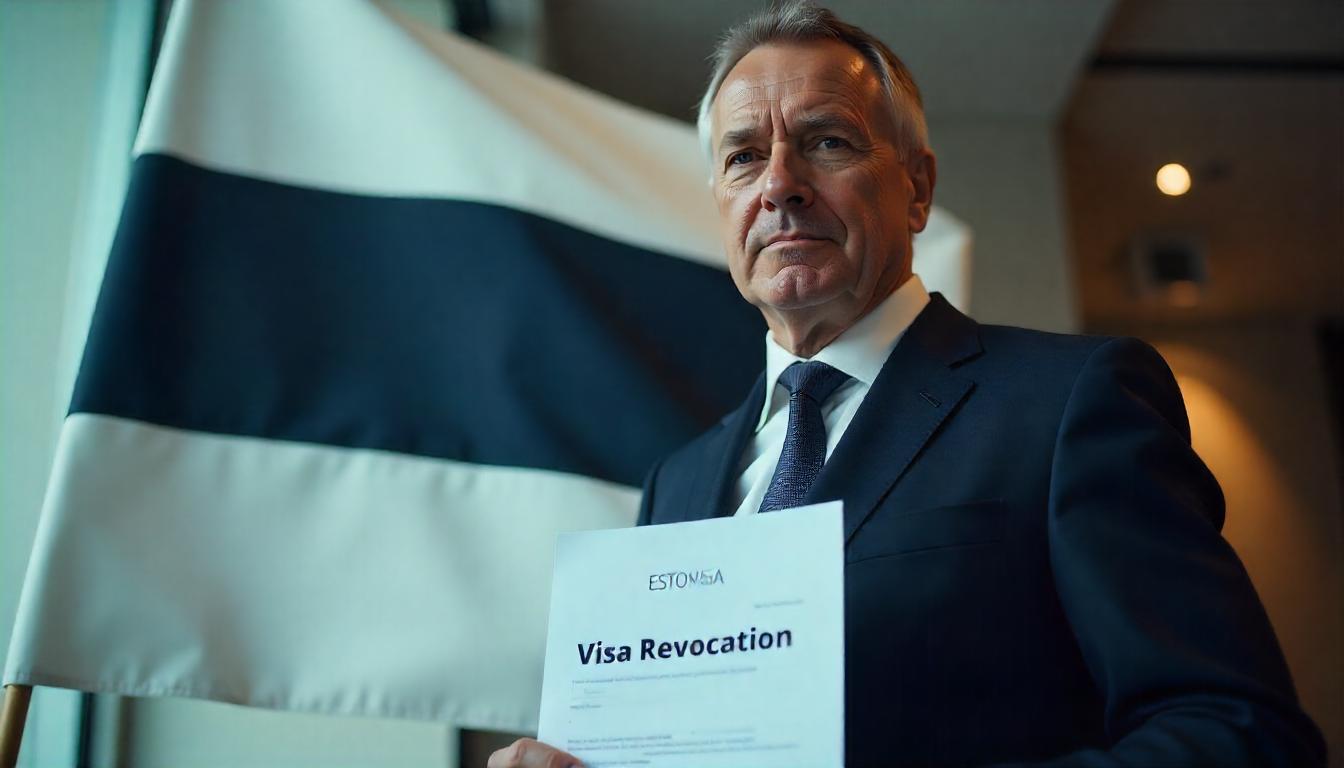As of May 8, 2025, Estonia has officially revoked visa-free entry for holders of Georgian diplomatic and service passports, a decision that reflects growing concern over political developments in Georgia. The move aligns Estonia with other European Union countries that have already implemented similar restrictions, following EU measures introduced earlier this year in response to what is widely perceived as democratic erosion in the country.
The Estonian government confirmed the decision through an official statement, explaining that Georgian diplomats and officials will now be required to obtain a visa before traveling to Estonia. The new rule does not affect Georgian citizens with biometric passports, who can continue to travel to Estonia under the EU-Georgia visa liberalization agreement—though this, too, is currently under review at the EU level.
A Coordinated European Response
Estonia’s decision follows the broader European Union action taken in January 2025, when the Council of the European Union voted to partially suspend the EU-Georgia visa facilitation agreement, targeting only diplomatic and official passport holders. That move, based on a proposal from the European Commission, means that Georgian diplomats are now subject to standard Schengen visa requirements, including paying full visa fees and possibly submitting additional documentation.
This coordinated response stems from increasing criticism of Georgia’s ruling party, Georgian Dream, which has been accused of undermining democratic institutions, limiting civil society freedoms, and introducing legislation that mirrors repressive models seen in authoritarian regimes.
Estonian Foreign Minister Margus Tsahkna emphasized that the revocation is a political signal, aimed at upholding European values. He also confirmed that discussions are ongoing within the EU regarding the potential restriction of visa-free travel for all Georgian citizens, depending on the trajectory of political developments in the country.
Diverging Views Within the EU
The move by Estonia joins similar actions taken by other EU countries, including Germany, France, Poland, and Norway, all of which have ended visa-free travel for Georgian diplomats and officials. However, Hungary has opted not to follow suit, with Hungarian Foreign Minister Péter Szijjártó stating that "the future of Georgia should be decided in Georgia, not in Brussels."
Georgia Pushes Back Against EU Decision
The Georgian government has criticized the EU’s partial suspension as politically motivated. Georgian Foreign Minister Maka Botochorishvili called the decision "groundless" and a violation of European principles, arguing that there is no evidence to suggest that Georgian diplomats pose a risk to public order or security in EU member states.
"This is politically wrong and unjustified," Botochorishvili said in a recent statement. "The suspension contradicts the very values that the European Union claims to defend."
Background: Rising Tensions Over Foreign Influence Legislation
The growing rift between Georgia and its European partners has been fueled by the Georgian parliament’s advancement of the controversial “foreign agents” law, which requires non-governmental organizations and media outlets receiving more than 20% of their funding from abroad to register as “agents of foreign influence.” The law has been widely condemned both domestically and internationally, with critics likening it to Russian-style repression of civil society.
Mass protests have erupted in Georgia, with thousands taking to the streets in opposition to the bill. European leaders have warned that the legislation could significantly derail Georgia’s ambitions to join the European Union—a goal long supported by a majority of the Georgian population.
What Comes Next
As Estonia implements the latest visa policy shift, the broader implications for EU-Georgia relations remain uncertain. Should the Georgian government persist in its current legislative path, additional EU measures could follow—including possible suspension of the entire visa-free regime for Georgian citizens.
In the meantime, Estonia’s decision marks another milestone in the deepening diplomatic rift, signaling that democratic standards will continue to play a central role in the EU’s engagement with its Eastern neighbors.








